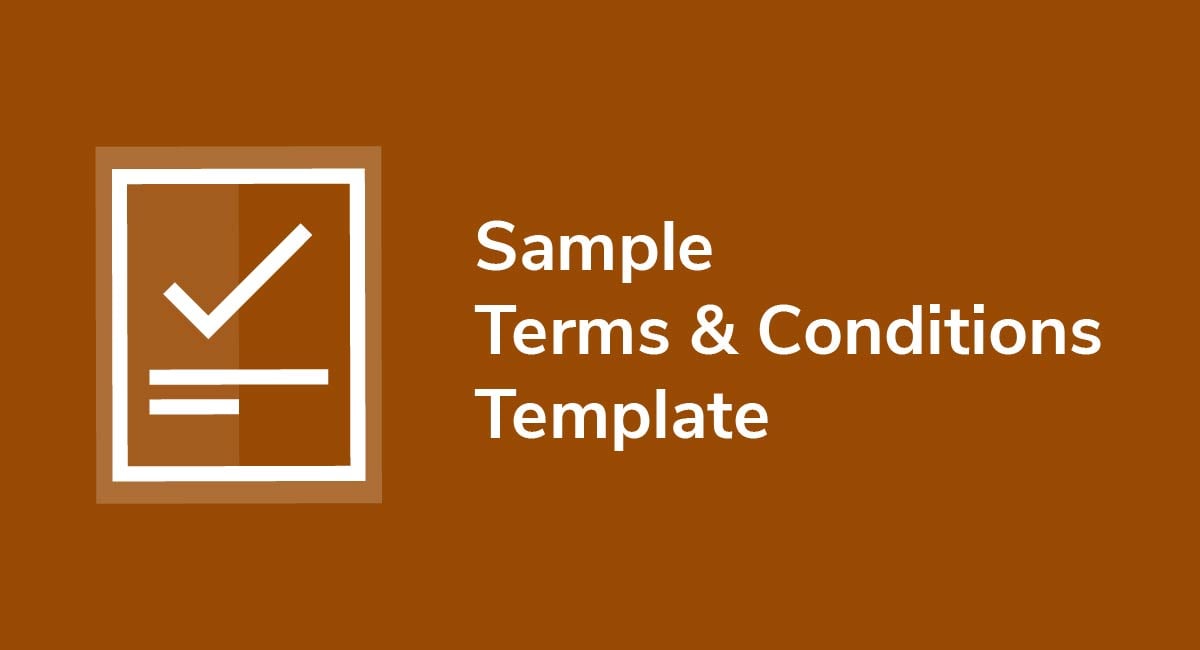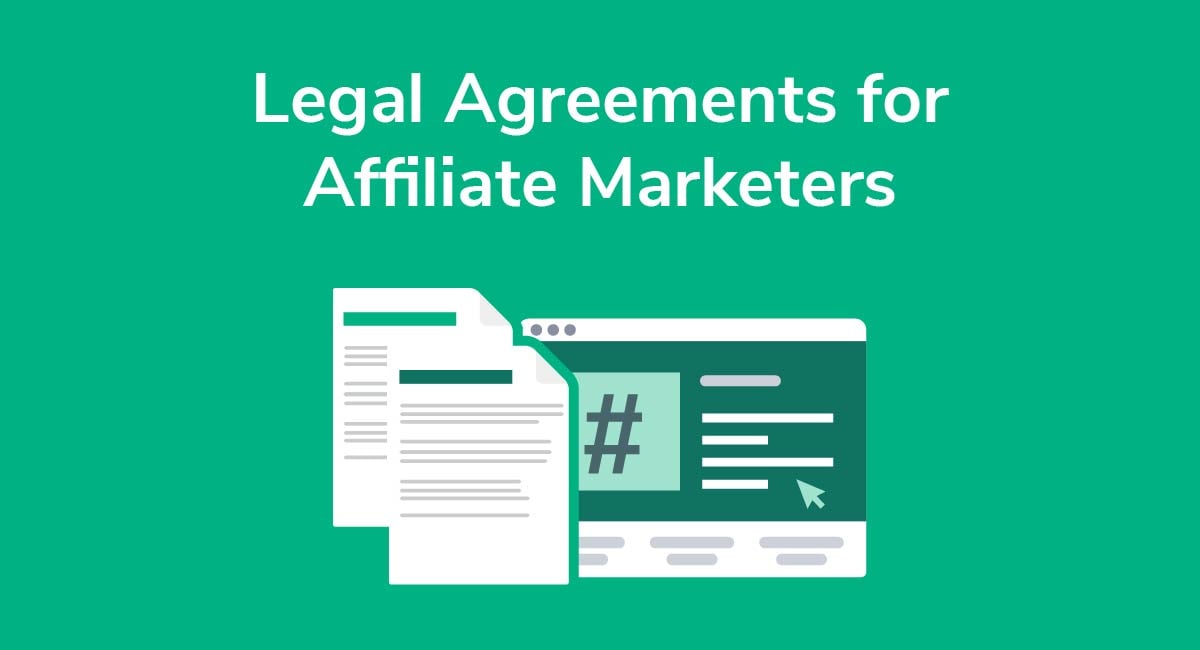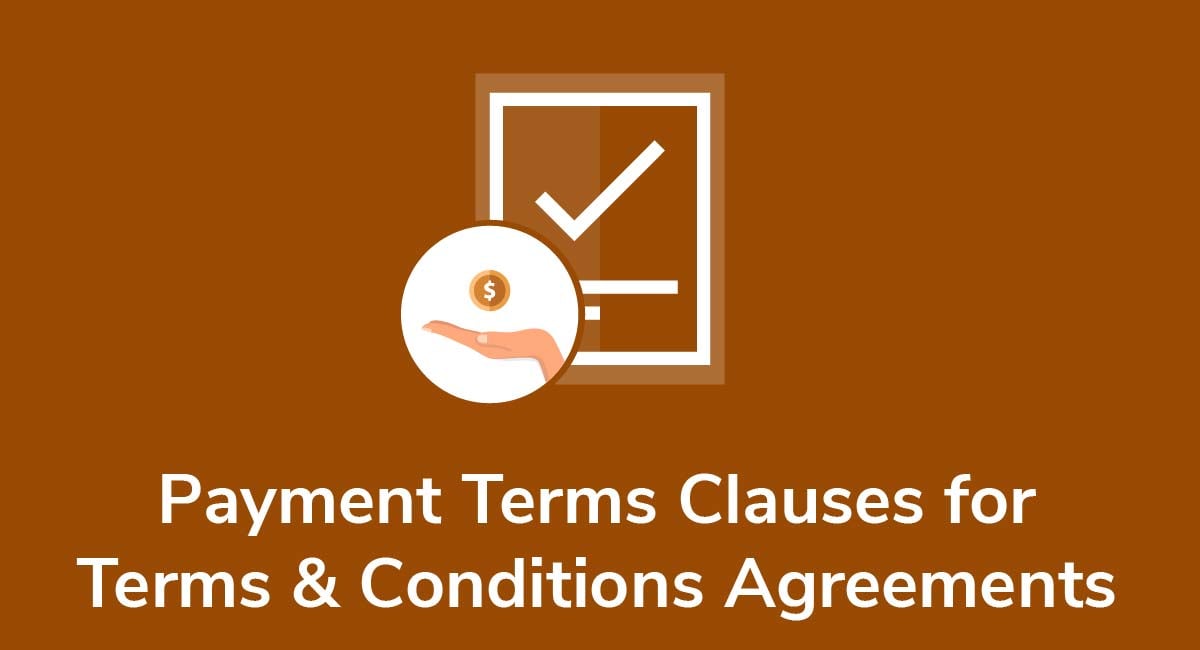Terms and Conditions for User-Generated Content
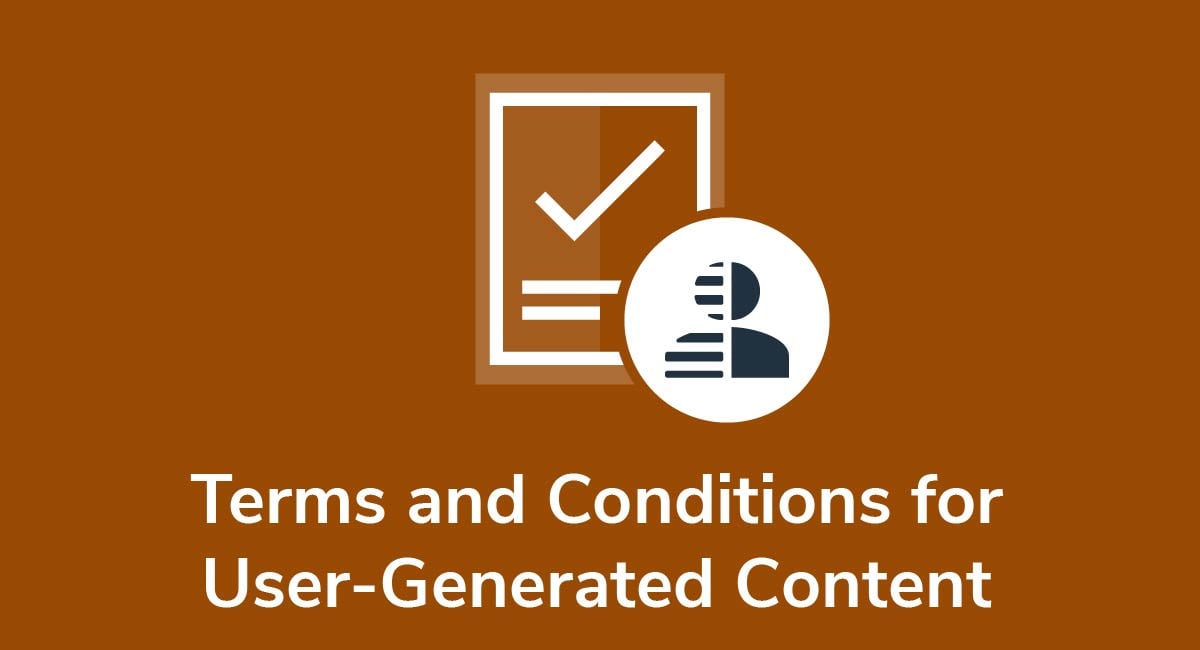
If you allow users to post user-generated content (UGC) on your website, then you need a Terms and Conditions agreement setting out your rules for acceptable conduct. Without one, you risk exposing yourself to significant legal liability issues.
Below, we explain why you need to address user-generated content in your Terms agreement, and how to draft your own Terms and Conditions for user-generated content.
Need Terms and Conditions for your business? We can help you generate a customized Terms and Conditions agreement in around two-three minutes for free. Try our Terms and Conditions Generator and just follow these steps:
- Click on the "Create your Terms and Conditions today" button.
- At Step 1, select the where will you use your Terms & Conditions and click "Next step":
- Add information about your business:
- Select the country and continue to the "Next step":
- Answer the questions about your business practices and click "Next step" when finished:
-
Enter your email address where you'd like your agreement sent and click "Generate."

You're done! Now you'll be able to instantly access and download your new agreement.
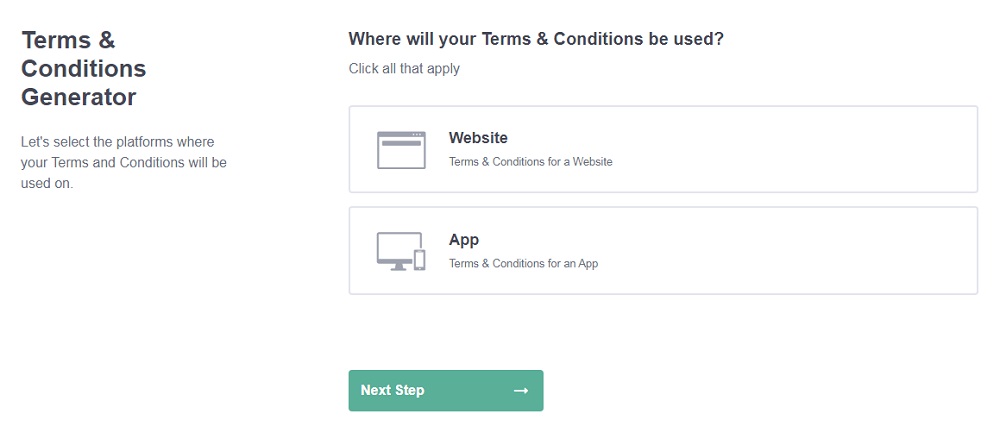
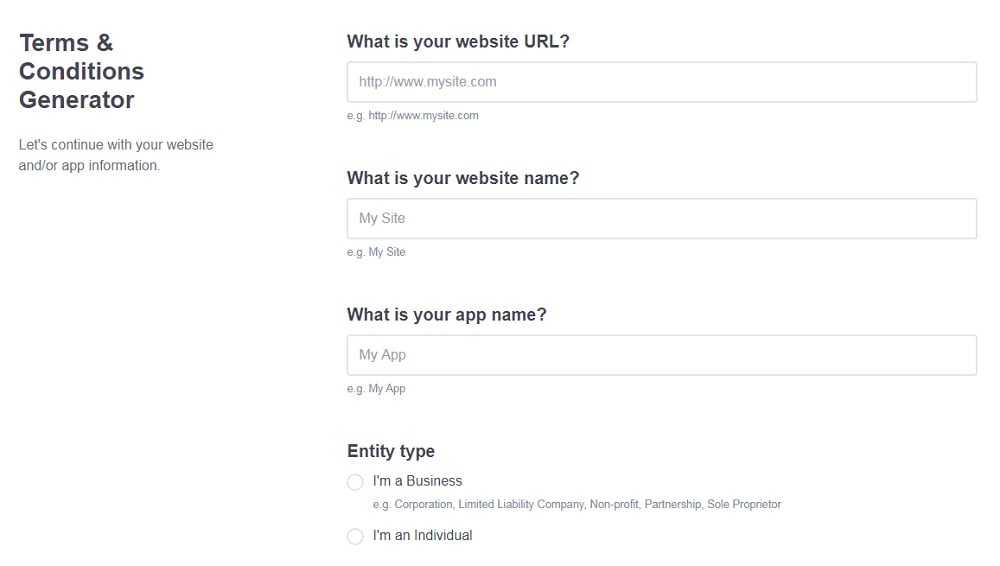
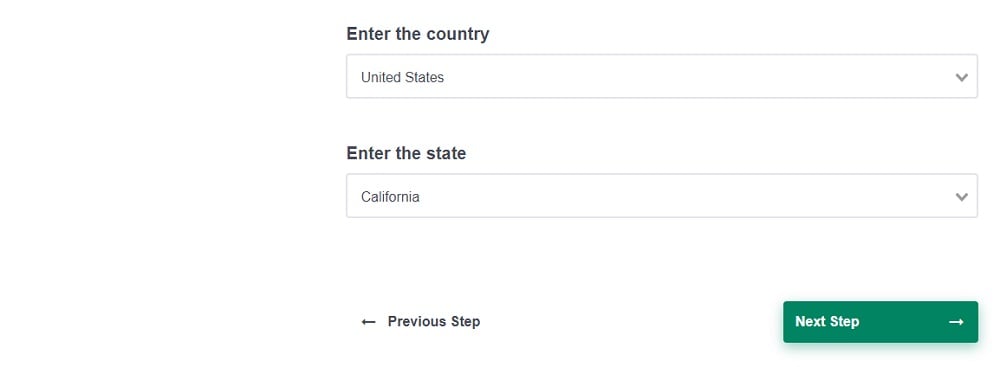
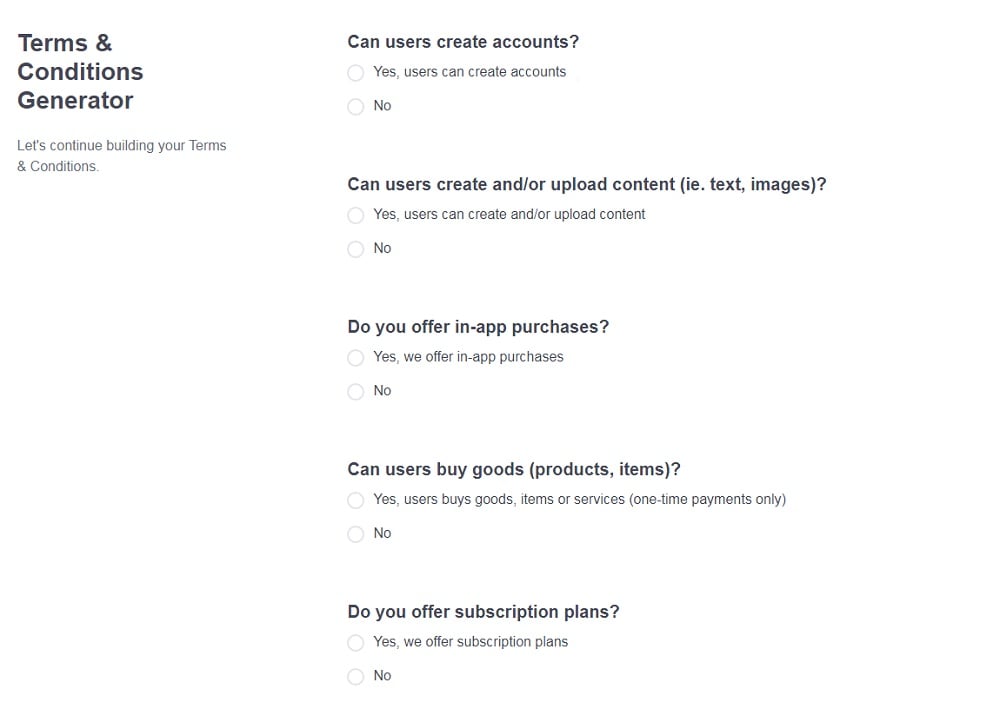
- 1. What is User-Generated Content?
- 2. What are Terms and Conditions for User-Generated Content?
- 3. Are Terms and Conditions Agreements Legally Required for User-Generated Content?
- 4. What are the Benefits of Having a Terms and Conditions Agreement for User-Generated Content?
- 5. What Should You Include in Terms and Conditions for User-Generated Content?
- 5.1. Introduction
- 5.2. Community Guidelines
- 5.3. Prohibited Content
- 5.4. Right to Take Action
- 5.5. Limitation of Liability Disclaimer
- 5.6. User Responsibilities
- 5.7. Intellectual Property
- 6. How Do You Display a Terms and Conditions Agreement for User-Generated Content?
- 6.1. Website Header/Footer
- 6.2. Account Signup
- 7. Summary
What is User-Generated Content?
User-generated content, or "UGC," is content created by your customers, or users, rather than your business employees. You may also see it referred to as "consumer created content."
User-generated content is unpaid, unsponsored, and usually created by fans or others who want to engage with your business. It comes in many forms, but usually includes:
- Videos
- Images
- Reviews
- Testimonials
- Forum discussion posts
- Tweets
What are Terms and Conditions for User-Generated Content?
Terms and Conditions for user-generated contents are a type of user agreement between users and businesses. Complying with the terms are a condition of using your platform. In other words, they set the ground rules, or house rules, for what's acceptable behavior on your platform, and what's not.
These terms can also be called the User Agreement, Terms of Use, or other variation. What matters is that it's clear what the policy covers.
As we'll cover below, your user-generated content Terms and Conditions agreements should cover all acceptable use of your platform, and shield you from some liability for user-generated content.
Are Terms and Conditions Agreements Legally Required for User-Generated Content?
No. Technically, you're not obliged to have Terms and Conditions agreements for user-generated content. Meaning, it's not illegal to let users post user-generated content on your website without having a Terms and Conditions agreement in place.
However, there are various reasons why you should always have a Terms agreement if you permit user-generated content.
What are the Benefits of Having a Terms and Conditions Agreement for User-Generated Content?

Having a Terms and Conditions agreement when allowing user-generated content has a number of benefits, including the following:
- Terms and Conditions agreements establish ground rules for using your service. They help users understand what's expected of them, if they wish to use your platform.
- If drafted effectively, Terms and Conditions agreements allow you to suspend or terminate accounts and remove problematic content without warning.
- Terms and Conditions agreements help to limit your liability for problematic content e.g. if a user violates copyright.
- A Terms and Conditions agreement reduces the chances of disputes arising between you and users.
What Should You Include in Terms and Conditions for User-Generated Content?
Every Terms and Conditions agreement for user-generated content should have, at minimum, the following clauses:
- Introduction
- Community guidelines
- Prohibited content
- Right to terminate accounts
- Liability disclaimers
- User responsibility guidelines
- IP clause
- Privacy clause
Here is more information and examples of each type of clause.
Introduction
Your introduction explains what the Terms agreement is and its scope i.e. what it covers. There's no need for a long clause. It just needs to be clear what the policy refers to.
Here's an example from DeviantArt:
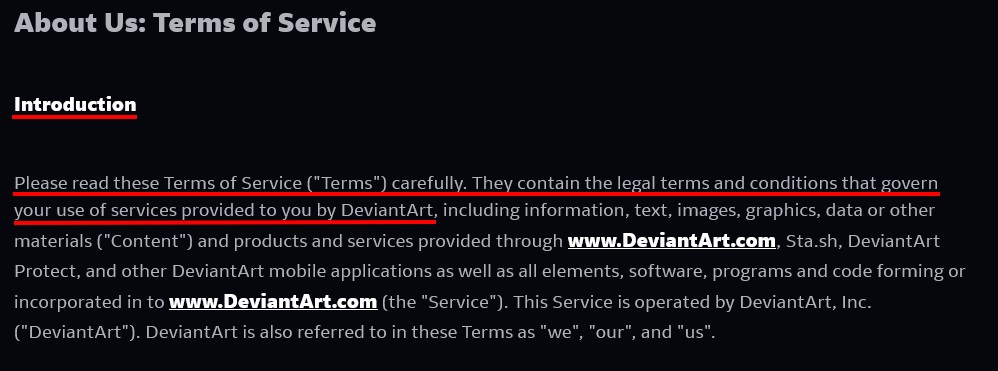
Community Guidelines
This is the section where you lay out, in specific terms, your house rules. These rules are crucial in any policy, and user-generated content Terms and Conditions agreements are no different.
Here, you can specify what users cannot do on your platform. Examples include:
- Posting viruses or malicious code
- Attempting to hack the platform
- Using the service to break the law
- Harassing or bullying other users
You can include as many rules here as you wish, so long as they're clear and specific enough for readers to understand. If they're confusing, misleading, or unfair, they may not be enforceable, or they could lead to disputes down the line.
Here's an example from Facebook. Notice that the clause, "What you can share and do on Meta Products" is broken down into short paragraphs and clear bullet points. Although some of the language is quite sophisticated, it's easy enough for the target users (Meta users) to understand:
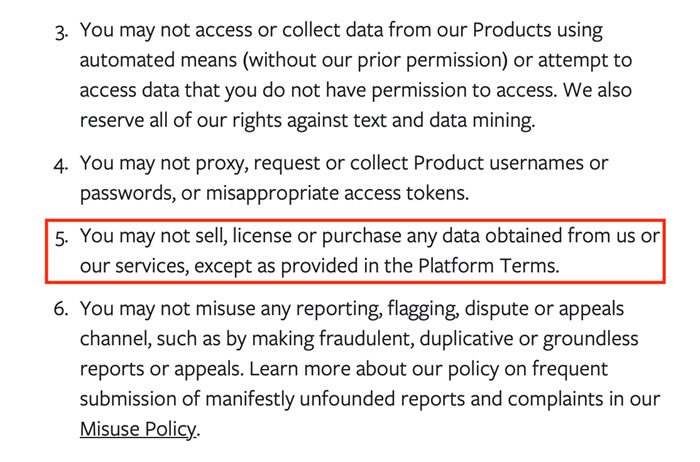
Reddit's agreement is equally clear. It's easy for users to understand their responsibilities, should they wish to continue using the platform:
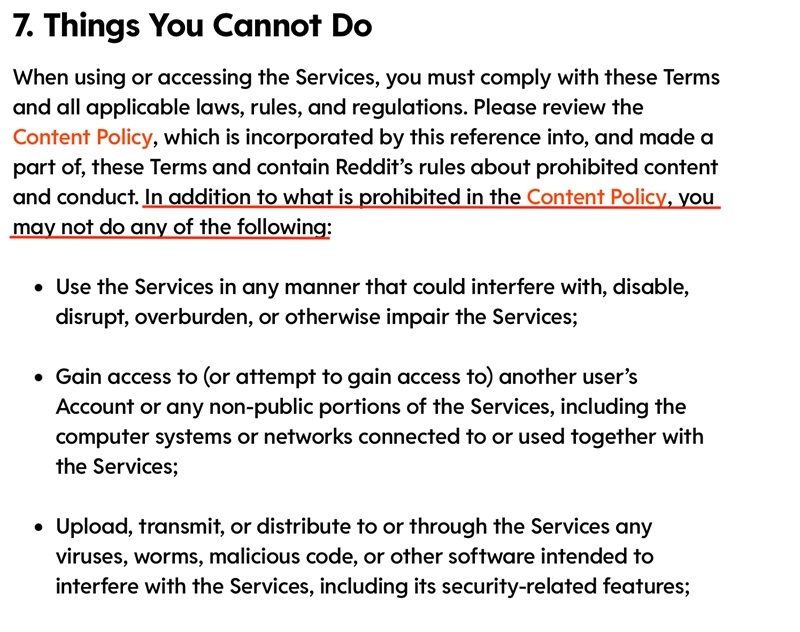
Prohibited Content
You should specify what type of content, specifically, users can't post or share on your platform. Prohibited content could, technically, fall under community guidelines, but it's worth dedicating separate clauses to this to make it very clear and stand out more.
What type of content might you prohibit? It depends on your audience. Typically, you'll want to prohibit content such as hate speech, sexually explicit material, and violent content.
You need to strike a balance between being specific, so users know what's expected of them, and general enough that you can take action against content you deem unacceptable.
Skool's Terms agreement, for example, prohibits solicitation of minors, and content which is "excessive" in size as this could affect the platform's integrity:

Zwift has a comprehensive User Content Policy within its general Terms of Service. In the section "Prohibited Conduct and Content," Zwift bans users from posting a wide range of content which may be libelous, lewd, harassing, or simply inflammatory:
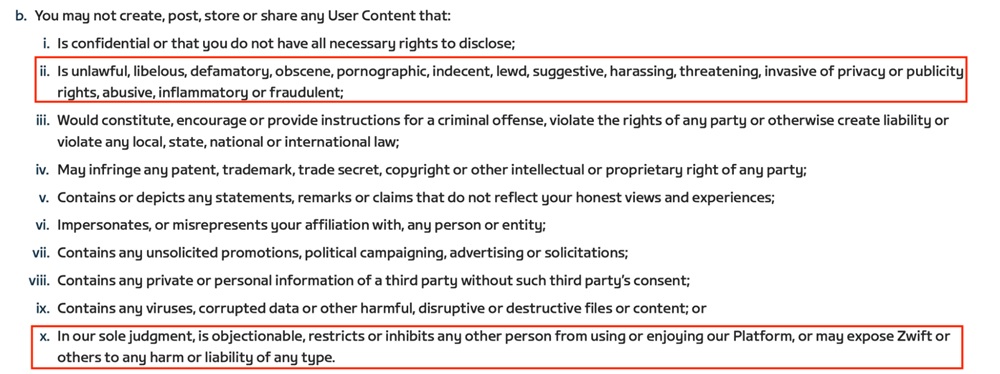
Zwift reserves the right to remove content which, at its sole discretion, it deems a risk to other users and/or the platform. This is a helpful "catch all" type of clause to include to exercise more control over user content.
Right to Take Action
You want to reserve your right to do two things: terminate a user's account, and remove any content which is not in line with your user-generated content Terms and Conditions agreements. These clauses should be included in any Terms and Conditions agreement.
DeviantArt can terminate a user's account at any time and remove posted content. This is a helpful point to include, because users know that they will lose data posted on the platform if their account is deleted:

To protect your brand, you need the right to remove user-generated content without warning. Hovis, for example, clearly reserves the right to remove user-generated content at its sole discretion. This means the company can take action on user-generated content at any time:

Limitation of Liability Disclaimer
You should limit your liability for harm caused to others by user-generated content. The best way to do this is through limitation of liability or waiver clauses.
You may consider limiting liability for, among other harms:
- Inaccurate content
- Misleading or false information
- Harmful content
- Morally objectionable content
Waivers help to limit your exposure if someone tries to sue your business in a civil (or even criminal) claim. With this in mind, keep your clause as broad as possible.
Pinterest has a good example you might review in its Terms of Service:
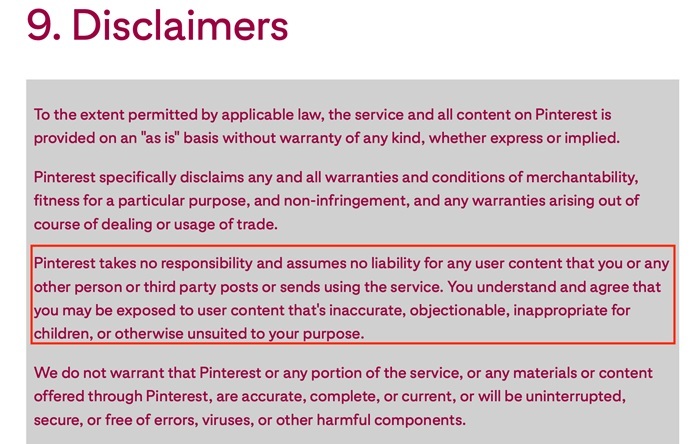
The more you can shield yourself from liability, the better.
User Responsibilities
Of course, users should take responsibility for what they post. However, you may also request them to report prohibited content. This is because it's impossible for you to monitor everything posted on your website. There's always the chance that a user will view questionable content before it's removed.
In this clause, you're shifting some responsibility to the wider user community. It's not legally enforceable (you can't force users to report other users) but you can encourage them to do so.
Pinterest, for example, reminds users that they're all part of the same community, so users should look out for each other. This is from the Pinterest Community Code of Conduct:

Intellectual Property
There's always the chance that someone will post copyrighted content. Under the U.S. Digital Millennium Copyright Act, you could be held liable for this, unless you provide a way for individuals to report suspected copyright infringement.
DeviantArt, for example, has the right to remove content which may violate copyright, but also has a clear process for reporting suspected violations. It's a short, easily understood clause, with a clickable email link to quickly submit your complaint:

DeviantArt then details what you should include to make a complaint. It's a comprehensive but easy to follow approach.
How Do You Display a Terms and Conditions Agreement for User-Generated Content?

Your Terms and Conditions agreement is ineffective if it's not displayed prominently on your platform. It's also necessary to get users to actively agree to the terms for it to be enforceable.
Here are some best practice places where you should place links to your Terms and Conditions agreement:
- Website header/footer
- Account signup page or form
You can request consent on the account signup page or form as well, which we will look at shortly.
Let's consider placement in more detail.
Website Header/Footer
Users often expect to find your core user agreements and website policies in your header, footer, or even sidebar. If you have a Terms and Conditions agreement for user-generated content, place a link to it here.
Reddit links to core policies, including the User Agreement, from the sidebar:
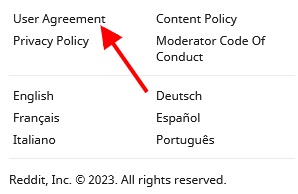
DeviantArt has its Terms of Service and other relevant policies in the footer of its website:
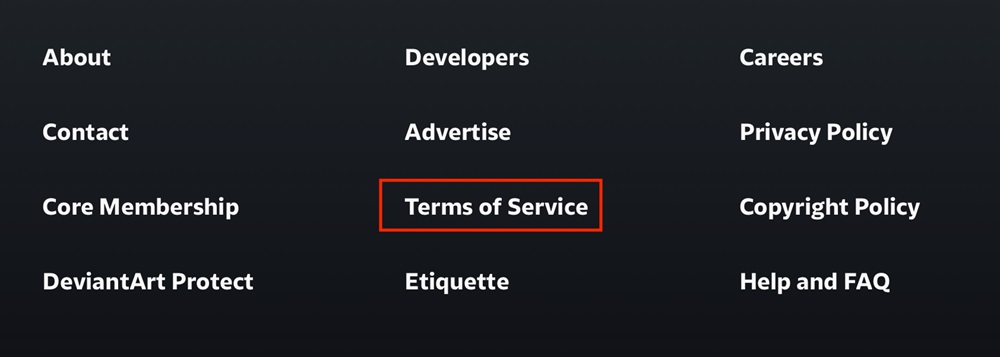
Wherever you place the link, just make sure it's highly visible and that the link is working.
Account Signup
Display your Terms and Conditions for user-generated content clearly on the account signup stage. This lets users know what they're agreeing to before they decide to create an account. It also makes sure they have a chance to see the agreement before submitting any user-generated content.
It's also a great time to use an "I Agree" checkbox to get users to clearly agree to your terms.
For example, before you sign up for a TrainerRoad account, you need to accept the website terms and policies:
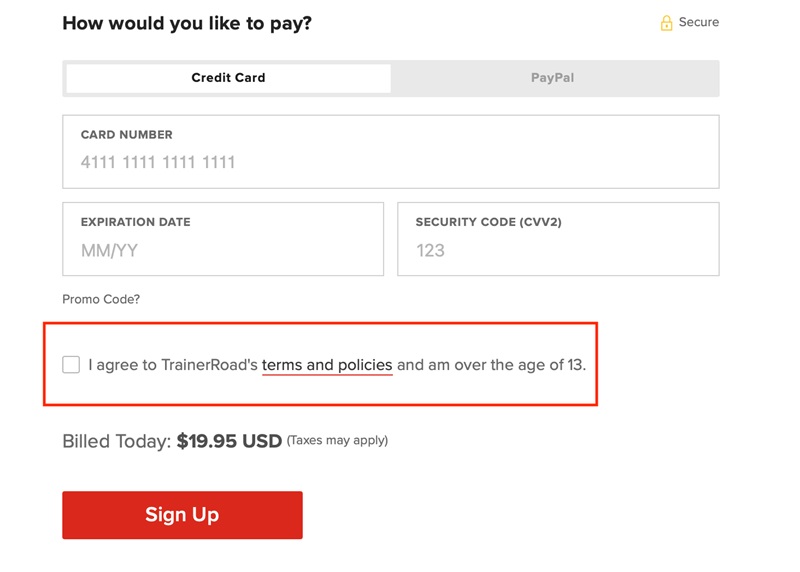
Summary
If you let users post content, or generate content, on your platform, then you should have a Terms and Conditions agreement for user-generated content on your website. Terms and Conditions limit your liability for problematic content, set clear boundaries for acceptable behavior, and give you control over who can use your platform.
Without Terms and Conditions agreements for user-generated content, you could expose yourself to unnecessary legal risks, damage your reputation, and waste time handling disputes which are easily avoided with clear Terms and Conditions.
Every Terms and Conditions agreement for user-generated content should, at a minimum, contain the following clauses:
- Introduction
- Prohibited content and/or conduct
- Community guidelines
- Liabilities and disclaimers
- Your right to take action
- Intellectual property rights
- User responsibility
You should display your Terms in your website header, footer, or sidebar. You should also display it at the account signup stage.
Use a checkbox to request users show they agree to your Terms.
